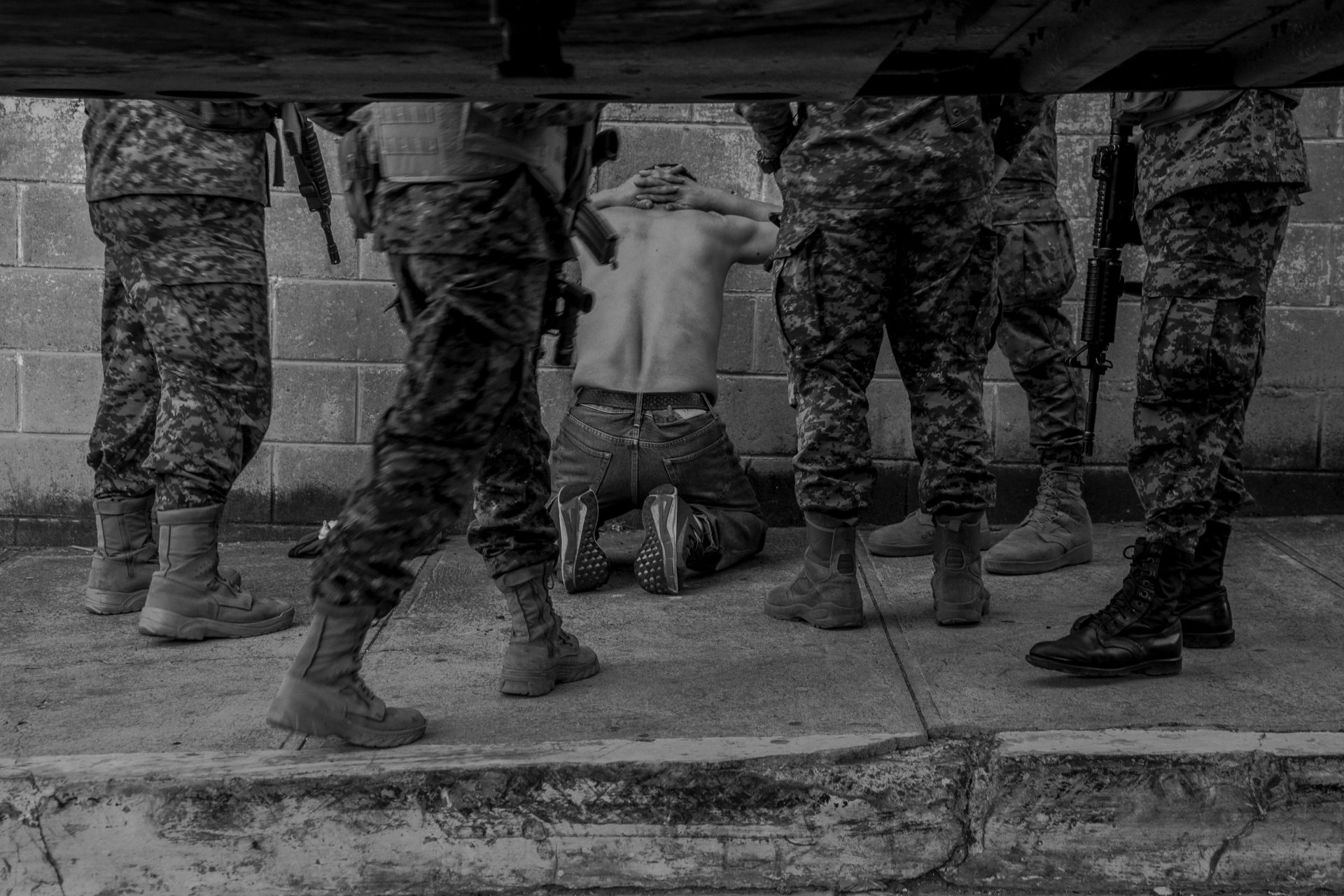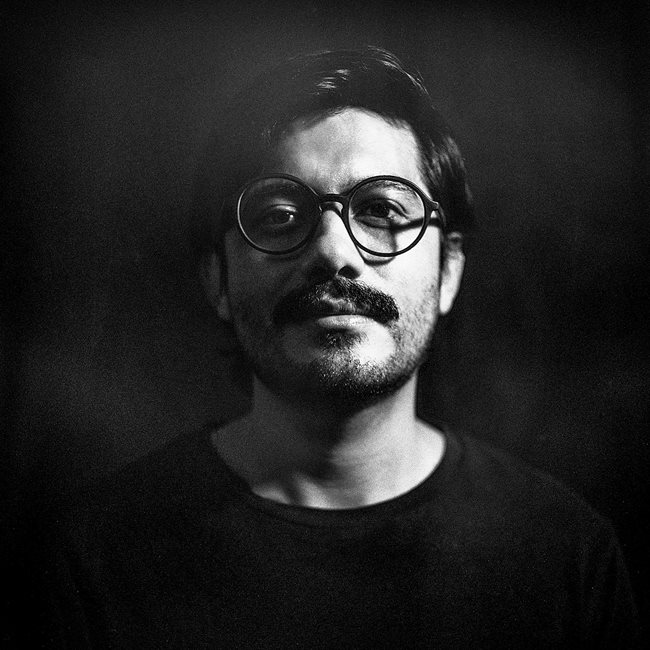A man is taken into custody by police on the day the El Salvadoran Legislative Assembly approved the “state of emergency.” Since that day, more than 80,000 people have been arrested. Santa Telca, El Salvador.
Over a few days in March 2022, 92 people – including bus drivers, street vendors, and shoppers – were killed in El Salvador, victims of what appeared to be random gang violence. Shortly after, President Nayib Bukele declared a "state of emergency," suspending rights to freedom of association, assembly, and privacy in communications. Critics of the administration argued that Bukele used gang violence as a pretext to advance authoritarianism and control dissent. However, Bukele justified human rights violations as “acceptable errors" in a "war against gangs.”
The “temporary” measure, designed to curb gang violence and lower El Savador’s high murder rate, has been renewed 35 times as of March 2025, turning El Salvador into a nation where mass incarceration is the norm. Three out of every 100 men are incarcerated in El Salvador, and 1.8% of the total population of the country is behind bars. As a consequence, prisons in El Salvador have become severely overcrowded and reports of inhumane treatment, poor medical care, violence, and murder are common. Human rights organizations estimate that hundreds of people have died in the El Salvadoran prison system since the “state of emergency.”
President Bukele’s policies have decreased crime and murder rates, but have disproportionately targeted the poorest and most vulnerable communities in the country. They have also begun to attract international attention, as countries like the United States have become interested in using El Salvador’s prison capacity to incarcerate its own deportees. This project focuses on the private struggles of individuals and their families, many of whom were never granted due process or found guilty of a crime, but who have become entangled in the larger web of national policy.
Are you a photographer and/or passionate about press freedom? Sign up for our newsletter to stay updated on our annual contest and to hear about exhibitions near you.

